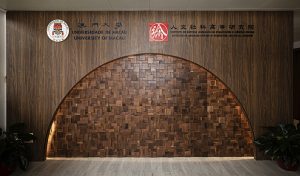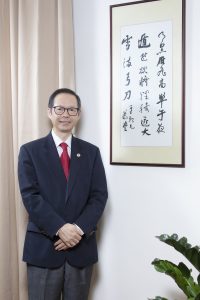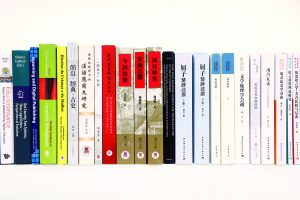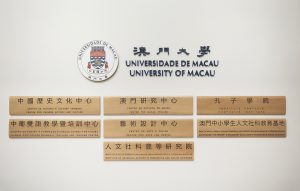The University of Macau (UM) has established the Institute of Advanced Studies in Humanities and Social Sciences (IAS) to promote research in the humanities and social sciences, and their collaboration with technology. Essentially, IAS aims to create a university-level, cross-faculty research platform, build world-class interdisciplinary research teams, and form a strategic synergistic structure to drive the sharing of academic resources.
A University‑level, Cross‑faculty Research Platform
Founded in 2019, IAS is headed by UM Vice Rector Prof Billy So, who serves as the institute’s interim director. He is a historian who specialises in the legal, maritime, and socio‑economic history of China. According to Prof So, IAS will coordinate the efforts of various faculties, including the Faculty of Arts and Humanities, Faculty of Social Sciences, Faculty of Business Administration, Faculty of Education, and Faculty of Law, to share vital resources and optimise research capabilities. He adds that the institute will recruit top‑tier scholars to work on special research projects.
In response to the development of the Guangdong‑Hong
Kong‑Macao Greater Bay Area, the government of the Macao Special Administrative Region (SAR) hopes to develop the city into a centre for exchange and cooperation with Chinese culture as the mainstream and the coexistence of different cultures. This initiative certainly requires comprehensive and cross‑disciplinary support. According to Prof So, the establishment of IAS is part of UM’s effort to seize the historic opportunities presented by the integration of the cities in the Greater Bay Area, and IAS will leverage the city’s geographical advantage, its inclusiveness, and its cultural diversity.
A ‘3+3+3+3’ Strategic Research Structure
UM has formulated a ‘3+3+3+3’ strategic research structure. The four ‘3’s in the strategy refer to the university’s three state key laboratories (for integrated circuits, Chinese medical sciences, and internet of things for smart cities, respectively), three new key research areas (precision medicine for cancer treatment, advanced materials, and regional oceanography), three interdisciplinary research fields(artificial intelligence, cognitive and brain science, and data science), and three research platforms for the humanities and social science (IAS, Centre for Macau Studies, and Asia‑Pacific Academy of Economics and Management). In all these areas, UM supports cutting‑edge research, interdisciplinary collaboration, and the integration of new technologies.
Developing Research Clusters in Three Key Areas
As a research platform in the humanities and social sciences, IAS hopes to enhance UM’s interdisciplinary research and develop an integrated, internationalised, and competitive academic platform. IAS has identified three keys areas where research clusters will be developed, namely Chinese civilisation in multicultural mélange; the convergence of arts, humanities and sciences; and Macao from a global perspective. ‘In these three areas, we will develop research teams with a top‑down approach, with accomplished UM scholars serving as the team leaders. These teams will carry out interdisciplinary and collaborative research in order to achieve breakthroughs,’ says Prof So.
IAS has identified three keys areas where research clusters will be developed, namely Chinese civilisation in multicultural mélange; the convergence of arts, humanities and sciences; and Macao from a global perspective. ‘In these three areas, we will develop research teams with a top‑down approach, with accomplished UM scholars serving as the team leaders. These teams will carry out interdisciplinary and collaborative research in order to achieve breakthroughs,’ says Prof So.
Committed to Contributing to Macao
Firmly rooted in Macao’s multiculturalism, UM’s teaching and research in the humanities and social sciences have unique advantages. The university has five faculties in the humanities and social sciences, offering programmes in a wide array of disciplines, including linguistics, history, literature, philosophy, religious studies, law, economics, management, business, education, communications, sociology, psychology, and political science. Noteworthy achievements have been made in areas such as Chinese history and culture, local history of Macao, Portuguese language education, the constitution and the Basic Law, tourism and gaming management, development of education in Macao, economic models, criminology, psychology, and media studies. In the Essential Sciences Indicators (ESI)rankings, UM is among the top 1 per cent in Social Sciences, General.
UM is committed to disseminating Chinese history and culture in Portuguese‑speaking countries, as well as enhancing Macao residents’ understanding of Chinese history and culture. At UM, the Cultural Building houses IAS, the Centre for Macau Studies, the Centre for Chinese History and Culture, Confucius Institute, Chinese‑Portuguese Bilingual Teaching and Training Centre, the Centre for Arts and Design, and Macao Base for Primary & Secondary Education in Humanities and Social Sciences. Together, they support Macao’s effort to become a regional, or even global, cultural exchange centre. Furthermore, two research centres at UM are now official partners of two Ministry of Education Key Research Institutes in Humanities and Social Sciences.
Prof So says, ‘IAS is dedicated to promoting university‑wide research in the humanities and social sciences, nurturing young talent, and stimulating collaboration between humanities and sciences. It also aspires to be a comprehensive and cross‑disciplinary local think tank that generates theoretical and empirical studies in different policy fields. These efforts intend to support the sustainable development of Macao, and to enhance the SAR’s participation in the development of the Greater Bay Area.’
Fellowship Scheme Targeted at Scholars at Home and Abroad
IAS has launched a Fellowship Scheme to encourage top scholars at home and abroad to conduct cutting‑edge research at UM as IAS fellows, and to promote research and exchange in humanities and social sciences in Macao. The scheme is divided into two categories, for regular UM staff and applicants who are not regular staff. The scheme provides outstanding UM scholars who are nearing the completion of their research projects with funding to help them complete their academic works. The other category is for senior or leading scholars from outside the university. It also aims to nurture excellent young scholars by enabling them to work with senior visiting scholars and UM scholars at IAS. Visiting scholars will receive different levels of funding from UM based on the specific dimensions of their visiting programmes and personal backgrounds.
Source: UMagazine Issue 22

The Institute of Advanced Studies in Humanities and Social Sciences (IAS) of the University of Macau

UM Vice Rector Prof Billy So

UM has attained some important achievements inhumanities and social sciences

The Cultural Building houses several important academic units inhumanities and social sciences
